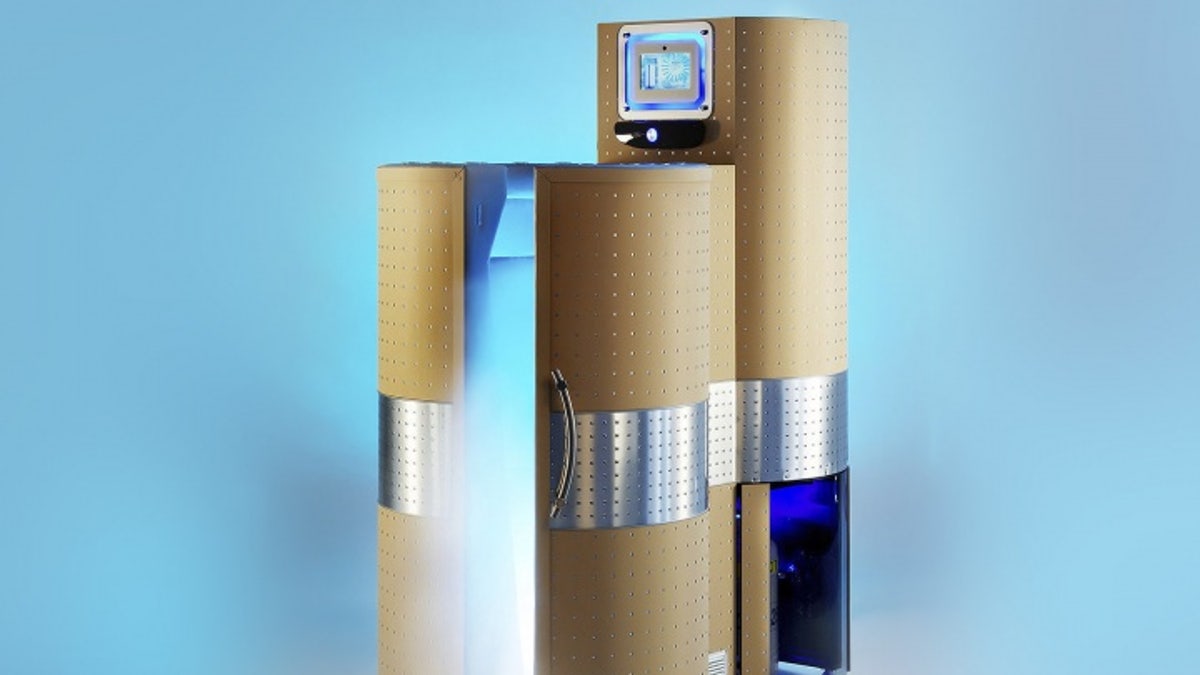
Freezing yourself (while still alive) never sounded like the best or most comfortable of ideas to me, but now that cryotherapy is gaining traction, researchers are looking into ways to make the potentially dangerous practice safer. Following the tragic death of a 24-year-old woman in a cryotherapy tank last year, researchers and regulators are renewing their efforts to better understand the risks and rewards associated with the treatment, and leading the charge is the University of Texas at Arlington (UTA) and the University of Texas at Austin (UT).
While cryotherapy has become a popular remedy for a number of ailments -- everything from orthopedic surgery recovery to muscle inflammation relief, and patients can choose from a number of different techniques. The most dangerous would seem to be whole-body immersion in cryotherapy chambers, and as researchers point out, "the risks to exposed skin and blood vessels constricted by temperatures of 50 degrees Fahrenheit or below can be severe, leading in some cases to nerve and tissue damage, neuropathy, and more serious impacts on the treated limb." Shockingly, between 1,500 and 2,000 cryotherapy related injuries are reported each year in the U.S. alone.
Krion R&D
As such, UTA and UT scientists have announced, new work at these two Texas institutions will develop "a solution in the form of what are believed to be the first formal protocols for effective and safe use of cold therapy, and a state-of-the-art cryotherapy device that can stimulate blood flow to keep tissue healthy and minimize potential side effects." Because there's nothing more disappointing than coming out of your healing session more injured than you were before.
The research will be funded with a $1.1 million grant from the National Institutes of Health, and will span around four years, researchers say.
"It is striking that there are currently no protocols for the use of cryotherapy devices despite awareness of risks to patients," said Anne Bavier, dean of the College of Nursing and Health Innovation at UTA in a statement. "This valuable work will provide the knowledge and new technologies needed to ensure patient safety while providing the benefits that cooling treatments have been known for since the time of Hippocrates."
Also watch: Batman: Arkham Origins' Mr. Freeze DLC teased in a new trailer
new DTVideos.Jwplayer('dt-video-container-2183252894', {playlist: [{"sources":[{"file":"http://content.jwplatform.com/videos/ebYHs3Wn-1280.mp4"},{"file":"http://content.jwplatform.com/videos/ebYHs3Wn-1280.webm"}],"image":"http://content.jwplatform.com/thumbs/ebYHs3Wn.jpg","mediaid":"ebYHs3Wn"}], primary: 'html5', controls: true, autostart: false, mute: false, repeat: false, image: 'http://content.jwplatform.com/thumbs/ebYHs3Wn.jpg', width: '100%', aspectratio: '16:9', advertising: {client: "googima", tag: "http://pubads.g.doubleclick.net/gampad/ads?sz=970x556&iu=/5611/dtmn.video/dt_ros&ciu_szs&impl=s&gdfp_req=1&env=vp&output=xml_vast3&unviewed_position_start=1&url=__page-url__&description_url=http%3A%2F%2Fwww.digitaltrends.com&correlator=__random-number__&cmsid=2860&vid=__item-mediaid__&cust_params=supports%3Dbt%252Cmp%252Cskin", schedule: null, admessage: null, companiondiv: [], skipoffset: null}}, {content_id: 'ebYHs3Wn', discovery: true});
Please enable Javascript to watch this video
